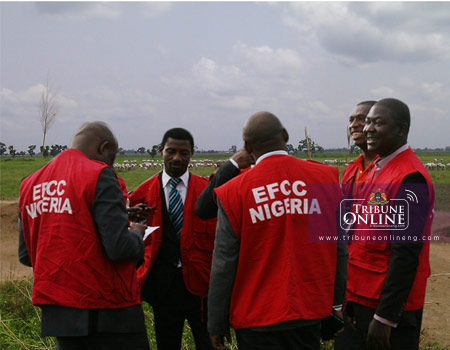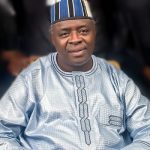Rather than working together and ensuring synergy in an effort to combat corruption in the land, these two institutions have continued to view each other with mutual suspicion. While the office of the AGF sees EFCC as incompetent, overzealous and insubordinate, the office of the AGF, in the EFCC’s estimation, is overbearing and lacking in transparency and commitment to fighting corruption. This unfortunate but patently avoidable state of affairs has prevented both institutions from getting down to brass tacks, with dire consequences in terms of local and international perception of Nigeria’s anti-graft campaign.
The latest evidence of such discord is the recent controversy around the Malabu OPL 245 scam. The Attorney-General of the Federation and Minister of Justice, Abubakar Malami, had reportedly sent an advisory memo to President Buhari calling for the discontinuation of investigation and prosecution of those fingered in the high-wired fraud. The AGF based his advice chiefly on the provisions of the Official Secret Act which, according to him, protected the affected officials from prosecution for actions taken while in office. But Ibrahim Magu, the EFCC acting chairman, disagreed strongly with Malami’s position and duly apprised the president of his position. He saw no wisdom in discontinuing a matter which was a subject of litigation in other jurisdictions and which had resulted in the repatriation of some of the laundered proceeds of crime to Nigeria.
The polar positions maintained by these two high-ranking officials on the Malabu saga exemplify the absence of cohesion and coordination under President Buhari. However, and happily so, the president took prompt action on the two memos from the AGF and EFCC by directing the latter to ensure that everyone involved in the Malabu oil scandal was prosecuted. What is gladdening is not the propriety of Buhari’s decision per se but its promptness. It contrasted with the vacillation and lethargic approach that characterised decision making in the past. Perhaps it should be mentioned that there have been many other points of disagreement and mistrust between the AGF and the EFCC acting chairman. There was the open complaint by the office of the AGF about the delay in submitting files of high-profile cases and those involving politically exposed persons to it by the EFCC. And there was the issue of the role played by the AGF in the rehabilitation, reinstatement and promotion of a civil servant and a fugitive from the law who was under EFCC investigation for corruption without the inputs of the investigator. There was also a recent case of issuance of query by the AGF to the EFCC acting chairman over the arraignment in court of Danladi Umar, the chairman of the Code of Conduct Tribunal (CCT), for alleged corruption without the AGF’s prior knowledge. The list is endless.
It is noteworthy, however, that notwithstanding the seemingly favourable public sentiments elicited by some of its actions that smack of insubordination, EFCC is institutionally under the AGF’s office and so cannot ordinarily afford to be at loggerheads with or undermine that office. It is anomalous for the EFCC to carry on as if it is responsible only to President Buhari. That is antithetical to the extant laws. It is even debilitating to the image of the government for the AGF and the EFCC to quarrel in the open time and again because they are the boldest faces of the anti-corruption war in the country. And rather than giving the impression of tacitly supporting Magu to ride roughshod over his supervisor, the president should remove the AGF, if he has been compromised. It is high time the president reined in the tendency for his appointees to work at cross purposes and engendered orderliness and concord among government institutions, the Presidency and his government in general.
ALSO READ: TI Nigeria’s corruption rating political ―Presidency






